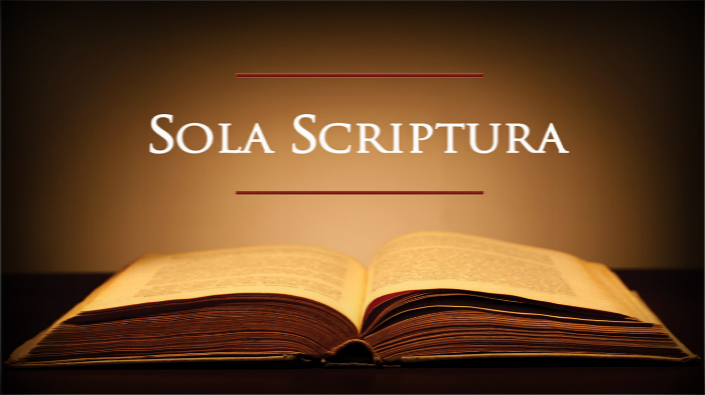The Nicolaitan Heresy
Christians generally don’t hear many sermons from those texts mentioning the Nicolaitans. The reasons might be as individual as the preachers, but it could also be because Revelation 2 is the only place they are mentioned and even at that not much is said about them. What we do know is that the doctrine of the Nicolaitans was an early Christian heresy, and that it was hated by Jesus. Evidently it was associated with the treachery of Balaam, the prophet who was for sale, and based on its name it likely had to do with its emphasis upon the distinction between “clergy” and “laity” also.
What is important to us is that we understand that this heresy is causing spiritual havoc in these last days. To have a working knowledge of the Nicolaitan heresy enables Christians to more accurately evaluate the current ecumenical movement whose goal is Protestant unification with the Roman Catholic Church, and it warns us of those lesser-known, end-time cults whose goal is to control people with a pseudo gospel.
The word nicolaitan comes from two Greek words, “nico” and “laos” or “laity”, which means “victory” and “people”, or victory over the people. Put the two together and you get a clear sense of the reason Jesus hated this heresy. It was from this doctrine that the Roman Catholic Church established the marked distinction between their priests and their people. Further, it eventually helped establish the doctrine of the Primacy of the Bishop of Rome (the pope) along with his infallibility and absolute control over all those in the Catholic Church. But, this not only refers to modern ecumenical forces. It is also the 2000 year old historical type that prefigured the merciless religious control that will be imposed upon people during the post-rapture tribulation, as seen in Revelation 13.
Before looking at the Nicolaitan heresy it is necessary to bring the practice of ecumenism into clarity. To be ecumenical is to be in a state of cooperation with all others within the sphere of Christianity. The problem, clearly, is what constitutes the sphere of Christianity. If a person is talking about the fundamentals of Christianity it is not difficult to be in that sphere. Examples are: the virgin birth of Jesus, His sinless life, death, burial, resurrection, ascension, His imminent return for His church, etc.
 In fact, in the early 14th Century Pope Boniface VIII said the following: “We declare, say, define and pronounce that it is absolutely necessary to salvation for every human creature to be subject to the Roman Pontiff.”
In fact, in the early 14th Century Pope Boniface VIII said the following: “We declare, say, define and pronounce that it is absolutely necessary to salvation for every human creature to be subject to the Roman Pontiff.”
So the logical question is, who gets to define what is Christianity? The simple answer is God does. We have been given His word, the Bible, on the subject and we have no need for any religious group and its leaders to impose a different answer upon us. The truth sets us free as Christians (John 8:32), and God’s word alone is truth (John 17:17).
Those who see themselves as simple Christians have been labeled as believers in the doctrine of sola scriptura, (by Scripture alone). That is a label they humbly and cheerfully accept. Thus they do not give any credence whatsoever to the dictates of any man-made, all powerful, self-perpetuating clerical hierarchy. They are free in Christ and they refuse to be in subjection to any such ecclesiastical power.
In Revelation Chapter 2 Jesus commended the church in Ephesus for hating the heresy, and He placed a charge against the church in Pergamum for holding to it. Since the doctrine is associated with Balaam, and since its name reveals much about it, we would do well to take another look at why Jesus hated this system so much.
For a refresher about Balaam read Numbers 22-24. Basically, since Balaam could not directly curse the Israelites as the Moabite king Balak had requested, he advised him on how to cause God Himself to curse them by tempting them into the sins of idolatry and immorality. The Israelites began to mix worship of God with pagan worship and this was their downfall. Their consciences were salved because they still talked about God, but they were sold out to pagan idolatry. In this way Balak finally achieved control over the Israelites, and such control is the object of Jesus’ warning.
Anyone who has dealt with people on a spiritual level for very long knows that a lot of people want a form of religion that sooths their souls in spite of their carnal lifestyles. Such people are not interested in the truth of the Bible. They are interested in the licenses a religion can offer, and that is often the allurement of Nicolaitan religions.
It doesn’t take much for such a person to be declared a faithful member of such a church. Certain protocols must be observed at certain times in their lives such as birth, marriage, holy days of obligation, death, etc., but not much more than that. At death a church officiant will preside over their funeral and declare them to be saved from hell. Such people often live with no real devotion to God. Their devotion is to their church. Thus they die thinking all will be made well at their funeral service by an official, credentialed and usually robed church cleric.
Many people like it this way. They are at liberty to be indulgent during their lives, and they have no fear of death. It is of no matter to them that they are essentially under the absolute control of a religion and its ecclesiastical hierarchy because, in the final analysist, they believe it is worth it. They are taught to live in almost complete ignorance of biblical truth, and are at the same time assured of heaven after a time spent in the fires of purgatory.
In this Nicolaitan system all responsibility for knowing religious dogma is upon the system’s priests. Once they complete their religious training they become their church’s official mediators between their people and God, with ultimate truth being dispensed from the Roman Pope whom they believe is infallible when he speaks ex cathedra, “from the chair of Peter”. Further, regarding Roman Catholic dogma and papal infallibility, the Catholic Encyclopedia says that the pope is not only exempt from error in matters of faith, but is exempt from even the possibility of error.
Such ecclesiastical power is condemned in Scripture. Speaking to all Christians, 1 Peter 2:5/9 says, “You yourselves, as living stones, are being built into a spiritual house for a holy priesthood…you are a chosen race, a royal priesthood, a holy nation, a people for His possession, so that you may proclaim the praises of the One who called you out of darkness into His marvelous light” (HCSB). Jesus is our High Priest (Hebrews 4:14-16) and no other, thus we need no human priest/mediator between us and God except Him (1 Timothy 2:5). We confess our sins to Him only, for He is the only One who can forgive our sins because He is the only One who could, and did atone for them.
Though the Nicolaitan system of 2000 years ago is alive and well today, people can presently choose to not be under this repressive system of man-made origin if they wish. By having scripture alone as their ultimate authority they can be free from human-inspired religious rules. Galatians 5:1 says, “Christ has liberated us to be free. Stand firm then and don’t submit again to a yoke of slavery.”
But such liberty will be removed from this planet when the church itself is removed in what Christians call the rapture. Any liberty that people presently have to choose what they believe will be done away with, and it won’t take too long to remove it. A powerful Nicolaitan religious system will quickly be in world-wide control (Revelation 13).
We know that after the church is removed the Antichrist will use a global religion to his political advantage. Though a great multitude of people will be saved during the tribulation, it will cost them their lives. Most people alive then, as now, will reject the truth. That does not mean they will not be religious, but it does mean it will be a hellish religion propagated by the False Prophet with all adoration directed to the Antichrist. In this soon-coming religion, every person on earth will be subject to Antichrist through the dictates of the False Prophet. Students of Bible prophecy often focus
so carefully on Antichrist that they fail to see just how powerful the False Prophet will be. He will be unswervingly devoted to Antichrist, and he will be cold-bloodedly unmerciful toward any and all who disobey.
In Catholicism there is no individual religious liberty that allows for an intimate relationship with, and direct access to God except through those who have Catholic authority. Emphasis is upon ultimate papal authority, and this is imposed upon Catholics under penalty of excommunication. Catholic Canon Law gives nine specific reasons for automatic excommunication whereas other excommunications can come after being conferred by a priest. In some cases, like after having an abortion, a bishop can delegate to a local priest the authority to remove the excommunication after the Sacrament of Penance. In other cases it takes the Pope himself, or his delegate, to lift the excommunication.
There are other religious groups whose authority and control over their people are Nicolaitan in nature, though their organizational hierarchy and history are not as entrenched as that of the Roman Catholic Church. They range from the bizarre like Jim Jones and his People’s Temple, and David Koresh and his Branch Dividians, to relatively modern cults such as the Jehovah’s Witnesses and Mormons.

Jim Jones David Koresh
The Jehovah’s Witnesses have their own exclusive, bastardized version of the Bible called the New World Translation of the Holy Scriptures which directly contradicts such Bible passages as John 1:1. In their version Jesus, the Word, was “a” God and a created being. Their governing body is the final authority in the interpretation of scripture, and independent study of the Bible is not allowed.
In the same way, Mormons place their books such as the Book of Mormon, their Doctrine and Covenants and their Pearl of Great Price on the same level of inspiration as the Bible. Further, they do not believe that the Holy Spirit is sufficient to lead and guide Christians, thus there is the need for a modern living prophet. He has the authority to propose additions to scripture. The Bible, they say, does not contain all of God’s truth which means that God must continually give truth to the Mormon church through their prophets. In a skewed way their statement is partially correct; the Bible does not “contain” the truth of God, it “is” the truth of God.
Characteristic of the Nicolaitan heresy is that it rejects the Bible as the sole authority for Christians, and this rejection is couched in ecclesiastical terms meant to impress, confuse or even intimidate adherents. The Nicolaitans make no bones about their ecclesiastical hierarchy being the sole interpreter of scripture. They tell their adherents that they (the laity, as they would call them) are incapable of understanding what they might read in the Bible, and are thus in need of a priest or religious founder or living prophet to tell them all they will ever need to know.
All of this about the Nicolaitans is important to understand, but there is one other thing about the impact of this heresy that must be pointed out. Though such religious leaders will be held accountable for their deception, people will stand before God as individuals for what they had opportunity to know as truth, and for what they did with that opportunity. In God’s court there will be no plea bargaining; no defense based upon self-imposed ignorance. Said another way, there will be no passing of the buck by saying, “It’s not my fault, God, because I just relied upon what my religious leader told me!”
 For the one who wants to be out from under the heavy hand of unbiblical ecclesiastical rule, and who wants to be a simple New Testament Christian as were those noble Bereans in Acts 17:11, they need only read the Bible and act upon what God has said. As a Christian you are a priest with Jesus as your great High Priest; you have no other because you need no other.
For the one who wants to be out from under the heavy hand of unbiblical ecclesiastical rule, and who wants to be a simple New Testament Christian as were those noble Bereans in Acts 17:11, they need only read the Bible and act upon what God has said. As a Christian you are a priest with Jesus as your great High Priest; you have no other because you need no other.
Further, there is no sacrificial mass in New Testament doctrine because Jesus was our sacrifice, and He did it one time for all people 2000 years ago. Because of this there is no altar in the church today, and there is no need for ecclesiastical ceremonies that emphasize the officiant as clergy and the congregation as laity. Nobody has such control over Christians. Though we have different abilities and callings, no one is spiritually subservient to anyone else.
Christians in these last days must resist all attempts by Nicolaitan groups to influence them. All we need has been given to us in the Bible. To add to it or take away from it brings God’s judgment (Revelation 22:18,19). DLM


